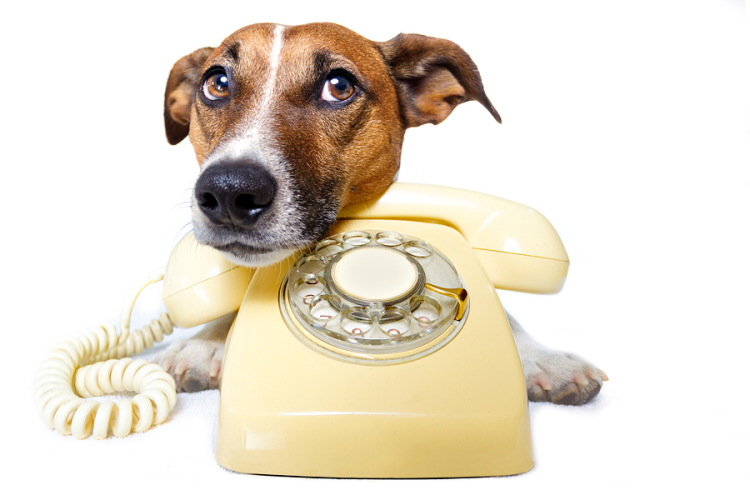Writers had a lot of things going for them, but, generally speaking, there is one thing that can work against them when it comes to doing interviews…
Writers tend to be introverts.
So why does that work against you? Well, most interviewers will tell you that the #1 thing they avoid is dead space. You know, those painful moments of utter silence when nobody can think of anything to say. Or when someone gives a one-word response to a question, leaving the interviewer—and the listeners—hanging. So how do you avoid that? Simple, prepare ahead of time.
Whether your book is fiction or nonfiction, published or not, it is helpful to have a list of potential interview questions and plugs. For one thing, thinking these through helps you better focus on who you are as a writer and what your core message is, which will will help you as you craft proposals and as you talk about your books with others. And when you have interview requests, you’ll be ahead of the game—and you’ll make the interviewer’s life easier as well. Always a good thing!
- Write 5 topics connected with your book. If you’re writing nonfiction, this is easy. But fiction writers can do this as well. One of the reasons interviewers are hesitant to talk with novelists is they keep thinking they have to talk about the story. You can clear up that misconception by finding the nonfiction topics in your novel. Focus on those for interviews.
- Write 5 possible topics connected to you (your background, education, personal experiences, previous work, unusual experiences, etc.) Don’t just think about your writing life, think about all of who you are and do. Hobbies, skills, talents, life experiences…they can all be fodder for discussion and stirring interest.
- Write 10 interview questions so that a radio or online host could read them and conduct a well-rounded 30-minute show that would cover the message of your book, your purpose in writing it, and you. Include a brief answer in parentheses for yourself. I can’t count the number of people who have told me they just went blank when the interviewer asked them a question. This way you won’t have to worry about it.
- Write down the main points you want to get across. Keep those in front of you during the interview to make sure you make them. Check them off as you do so. What to do if the interviewer doesn’t ask the right lead-in questions? Simple, just take the conversation where you want by saying something like, “You know, something else to consider is…”
- Be ready for questions you don’t want to answer. Think about the kinds of things someone could ask that you have no desire to discuss, and come up with responses that redirect the conversation. So if the interviewer says, “Your last book hasn’t sold very well, has it? Why do you think that is?” You can deflect and redirect with something like, “That’s a great question, but I’ve found that understanding the how and why of book sales is right up there with men understanding women. It’s a lot easier, though, to understand <insert your point here>…”
Here are a few sample questions (which are totally fictitious, of course…)
- In your previous books you tackled the elements of being a successful writer. Tell us what issue is behind your new book, “Taking Down Grizzly Bears.” (Answer: After being a writer for more than 30 years, I realized the survival skills I’d learned could work well in most any situation. And wrangling grizzlies is a breeze compared to facing down editors and agents!)
- How has your educational or professional training prepared you to deal with this topic? (Are you kidding? My work as an editor, agent, writer, in-house and freelance, taught me how to not just survive, but thrive, in fierce battles.)
- Have you faced such an issue yourself? (Every moment of every working day.)
- What is the single most important thing someone facing down a grizzly bear needs to know? (Answer: Never let ‘em see you sweat. And make sure you take along someone who can’t run very fast. That way all you have to do is outrun that person, not the bear.)
So there you go! Now that you’re prepared, you can relax and just have fun!



 Standing for Something
Standing for Something
Hi Karen,
Thanks for these great tips. It’s so much easier for me to talk to others about things besides myself. One recent interviewer mentioned her son’s name is pronounced like my last name but spelled differently. She immediately put me at ease before we even talked about me or my story.
Your ideas will help prepare me better for my next interview. Thanks!
Thanks for the practical advice, Karen. I’ve copy/pasted your tips to keep on file. Great to have them ahead of time, instead of after the embarrassing interview.
Great tip, Bobbi. I just did the same (copy/paste this article) so, whenever that first interview comes along, I will be better prepared. In fact, with these great tips, I might just have the confidence to start seeking those interview opportunities.
Wow, Karen! What great suggestions. I’m doing like Bobbi (above). I’m going to copy and paste to a Word doc for future reference!
My publisher includes a list of possible interview questions with the press kit it mails out for my books. For the most part, radio hosts stick closely to the questions, especially if they interview a lot of authors and don’t have the time to read every book. I write out answers to each question beforehand using a casual style that translates well to speaking. I don’t read the answers on air, but I do use them as a basis for my replies. It keeps me from ummmm-ing and ahhhh-ing and going off topic. I also try to customize the interview for the listening audience, either by making geographic ties or emphasizing messages from my books that would resonate with listeners. I also work on questions an interviewer might ask, so that I’m not caught unprepared, and I agree that redirecting a question to bring up something you’d rather discuss is the way to go. This comes in handy especially when you’re doing a Q&A after a book chat.
Great list!
I;’d add this – if it’s an in-person interview, treat it as a conversation, and keep eye contact with your interviewer.
Also…
If it’s a phone interview, it’s a lot harder. Avoid those.
It it’s television, spare no expense to look good. Nothing kills self-confidence like the nagging thought that you’ve got a cowlick.
Use a breath mint beforehand. Even though you will probably not be close enough for your interviewer to notice bad breath, YOU will feel it, and it’ll add to the self-consciousness load. And this works for a phone interview, too.
Don’t drink coffee beforehand unlessyouwanttotalklikethis. Use cola; it has less caffeine, but the sugar will give a kick.
If tea has a diuretic effect on you (it does on me),don;t drink it on the interview day.
Know how to pronounce your interviewer’s name beforehand.
If your interviewer mispronounces your name, let it go. No one likes to be corrected, and you can turn a friendly interview into one that’s implicitly hostile.
Above all…enjoy the ride while it lasts.
I wish I’d had this post a few weeks ago. I did a recorded interview in which I knew none of the questions beforehand. Now I keep kicking myself because I see ways I could have done so much better! Oh well, it’s in the past now. 🙂
I love this post and your practical suggestions, Karen. I’m copying/posting this one too. 🙂 Thanks so much!
These are some great tips, Karen. I’m one who has a hard time coming up with things to say on interviews or blogtalk shows, so this method has worked well for me. I usually have blog interviews anyway, so I can usually use those interview questions/answers as a cheat sheet for phone/video/blogtalk interviews.
Amber Schamel
Another great post nourishing writers. Thanks so much! With all the rest – I have kept this one for future meals.
Thanks for the great tips. They remind me it’s important to take time to prepare thoroughly – for the writing, and then for all the other steps as well.
Fantastic list, thanks, Karen!
I really want to hug the dog in the picture.
Wow! This is such great info. I plan to schedule interviews for this summer’s release of my novel. Your post is going in my resource notebook. Thank you!
Thanks for the list, Karen. Looks like there’s going to be a lot of copy and post going on with it. Valuable advice – boy scout fashion – “be prepared”. And you gave us practical ways to do so. Thanks much.
Fantastic list! How I wish I’d had it when my book came out. I’ll join the gang in filing it for next time.
And from the conversation I infer a note to myself: “Make sure to ask the publisher for a copy of the press kit!”
My radio interviews ranged from 10 to 20 minutes, which is a very short time to get into much of substance, and were on wildly different kinds of shows. The best thing I did was listen to the shows in advance on the Internet to know whether I was facing measured thoughtful conversation or a high energy blitz approach.
Very helpful post, Karen. Thank you!
Hi Karen. These tips are great. I will use them in reverse since I sometimes send interview questions to guest bloggers and will soon be hosting a blog talk radio show. You offered some great ideas I hadn’t thought of. Thanks so much for sharing!